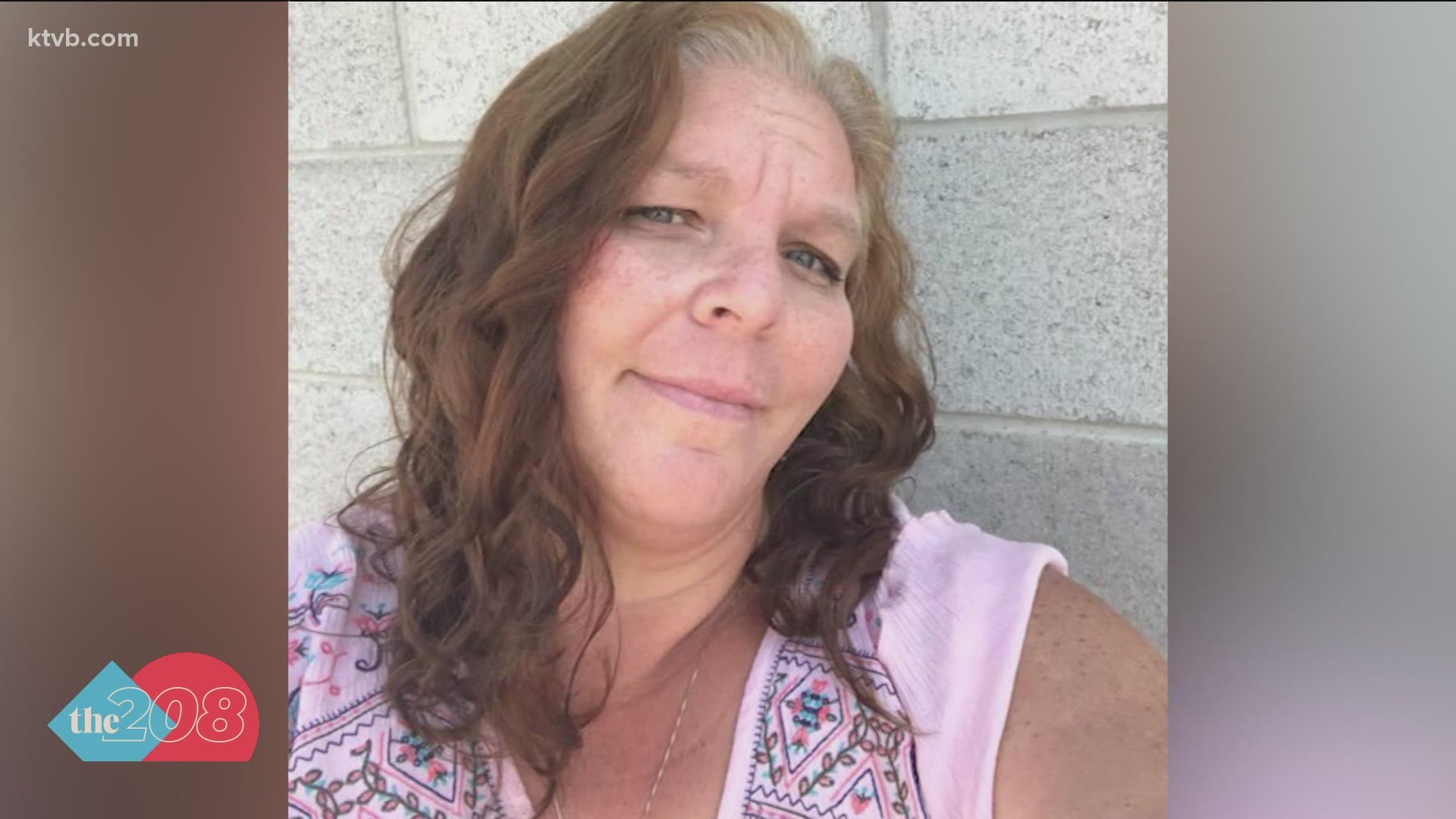BOISE, Idaho — Carol Ruhter is battling serious symptoms after testing positive for COVID-19. She was taken to St. Luke's in Twin Falls as her condition got progressively worse.
“I thought I was dying, my whole body was so hot. My temperature when I got to the hospital was 103.8 degrees and I couldn’t breathe,” Ruhter said. “It’s been a nightmare.”
Unfortunately, Ruhter is all too familiar with COVID-19: this is now the second time she’s gotten the virus.
“This is worse than it was in March. I had mild fevers, they kept coming and going but they were never really higher than 100 to 101," Ruhter said. "This is completely different than in March. When it first started in March, I felt like I had a 50-pound weight on my chest. It wasn’t nearly as bad as this.”
Ruhter’s family started a fundraiser to help cover medical costs. As many Americans have learned, hospital expenses for COVID-19 quickly add up.
Getting COVID-19 twice is not impossible; research has drawn some conclusions on immunity to the virus, according to retired CEO and president of St. Luke's Health System Dr. David Pate.
"It certainly isn’t common, but it’s well documented,” Pate said. "If you get infected with COVID, we have reason to believe that immunity is short-lived.”
There is a lot more research to be done across the board on the virus and immunity, but antibody research has shown some interesting results.
“Of people who do develop the antibodies, which is the majority, it does tend to wane," Pate said. "It tends to drop down the levels such that at several months somewhere between 16% and 40% of people may not even have measurable antibodies anymore."
Idaho coronavirus latest: 464 new confirmed cases, three deaths reported Monday
“It was completely unfathomable to me that I would be able to get it again," Ruhter said. "I just want people to know that it is possible, and they need to protect themselves and get back to fighting it together."
Ruhter’s case illustrates what research has found: unlike other viruses, getting COVID-19 for a second time does not mean it will be easier for the body to handle.
“We have seen a couple of cases now where the reinfection has been far more severe than the initial infection," Pate said. "Obviously there is still much for us to learn about this virus."
Contrary to cautious optimism, the body's natural immune response to COVID-19 is not overly impressive, further emphasizing the need for a successful vaccine.
“There is great hope that the vaccine-induced response will be much better," Pate said. "Could get us a year, two years, maybe three years of protection, we don’t know yet. We will know the answer to that before too long.”
Pate made it clear: whether you are worn out waiting for life to get back to normal or whether you have had the virus yourself, preventing the further spread of the virus is so important.
From her hospital bed, Ruhter echoed Pate’s sentiment.
“If there is one thing you can do to help save somebody from having to be in a situation like me again, it’s [wearing] a mask and wash your hands and use hand sanitizer,” Ruhter said. “It’s everybody’s job to help protect each other. When this all started it was, we are all in this together. Something just went wrong, and I don’t think people are thinking that way anymore.”
To learn more about Ruhter's fundraiser, click here.
Watch more of The 208:
See all of the latest episodes of KTVB's newest show in our YouTube playlist:
Join 'The 208' conversation:
- Text us at (208) 321-5614
- E-mail us at the208@ktvb.com
- Join our The 208 Facebook group: https://www.facebook.com/groups/the208KTVB/
- Follow us on Twitter: @the208KTVB or tweet #the208 and #SoIdaho
- Follow us on Instagram: @the208KTVB
- Bookmark our landing page: /the-208
- And we also turn each episode into a podcast on Spotify or Podbeam
- Still reading this list? We're on YouTube, too:

